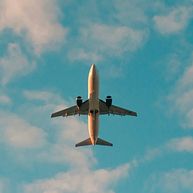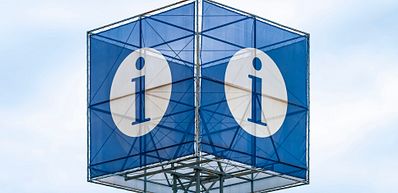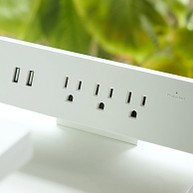
-
![info banner]() Provided by: Marcel Eberle/unsplash
Provided by: Marcel Eberle/unsplash

Our travel guides are free to read and explore online. If you want to get your own copy, the full travel guide for this destination is available to you offline* to bring along anywhere or print for your trip.
*this will be downloaded as a PDF.Price
€4,95
FAQ
The guide was updated:Is San Francisco a bad place to visit?
— San Francisco can sometimes feel unsafe to travel to, but these feelings are largely due to the cultural images of people experiencing homelessness and drug addiction that appear in the media.
Why is San Francisco so expensive?
— San Francisco is an incredibly diverse, dynamic, progressive city with a host of activities, restaurants and sights. The region's culture, economy and natural beauty makes it an appealing place to live. Prices are increasing rapidly as more people move here. The housing supply has not caught up. Heavy regulation makes it incredibly expensive to build new housing in much of the Bay Area.
Can you drink the tap water in San Francisco?
— Yes! The tap water in San Francisco is safe to drink and locals swear it is the best in tasting tap water in the U.S.
What is the best part of San Francisco to stay in?
— San Francisco is an exciting and scenic city, but if you're hoping to see the sights, you should probably stay downtown, because it's one of the most densely populated parts of the city.
Useful Information
Digital Travel Guide Download
Our travel guides are free to read and explore online. If you want to get your own copy, the full travel guide for this destination is available to you offline* to bring along anywhere or print for your trip.
*this will be downloaded as a PDF.Price
€4,95

San Francisco International Airport (SFO) is located 8 miles (13 kilometers) south of the city and offers a wide range of domestic and international flights.
BART rapid rail runs from SFO to San Mateo County, San Francisco and the East Bay. It is a convenient and quick way of getting to the city center. You will find the SFO BART Station on the Departures/Ticketing Level of the International Terminal (Boarding Area G side). Tickets can be bought at the SFO BART Station upon arrival.
SamTrans offers 24-hour bus service connecting SFO to San Mateo County and parts of San Francisco.
Caltrain Commuter Rail provides rail service between San Francisco and San Jose.
Taxis and ridesharing apps offer door-to-door service to any destination within San Francisco and surrounding communities.
Read more

Oakland International Airport (OAK)
Oakland International Airport (OAK) lies 20 miles (32 kilometers) east of the city.
BART trains connect Oakland International Airport with downtown San Francisco, Oakland, Berkeley and many other Bay Area destinations. Oakland Airport BART station is located next to the Terminal 1 baggage claim area.
There are also several bus lines connecting OAK to several Bay Area destinations.
Read more

San Jose International Airport (SJC)
San Jose International Airport (SJC) is located 40 miles (64 kilometers) south of the city and is thus the furthest from San Francisco.
The free VTA Airport Flyer connects the airport to Santa Clara's CalTrain station. You can take Caltrain to both San Francisco Airport and downtown San Francisco. This option is free, but most time-consuming. Private van and taxi services are also available at the airport; van pick up may be arranged from any location in San Francisco (inquire about prices when booking).
Read more

Passport/Visa
Citizens of the Schengen countries, the United Kingdom, Ireland, Canada, Australia, New Zealand, Singapore, Japan, South Korea, Taiwan and the Kingdom of Brunei can visit the United States for up to 90 days without applying for a visa (as well as citizens of Andorra, Lichtenstein, Monaco and San Marino). Citizens of these countries must obtain an ESTA (Electronic System for Travel Authorization) before traveling. All other travelers must obtain a visa before visiting the United States. International travelers need a passport that is valid for at least 3 months after the end of their intended trip in order to enter the country.
Read more

Best Time To Visit
San Francisco’s climate is influenced by the cool currents of the Pacific Ocean. Days are generally cool year-round, and summer days are often foggy in the afternoon. Average summer temperatures range from 59–79ºF (15–24ºC) and winter from 50–59ºF (10–15ºC).
Fall is the best period to visit San Francisco, as the weather tends to be pleasantly mild and there are smaller crowds than during the summer. Spring is another good time to visit, and tends to see a lot less precipitation, and that is when the city hosts many festivals including the St. Patrick's Day Parade, the San Francisco International Film Festival, and the San Francisco Carnaval.
During the summer, this already lively city gets even more colorful with the San Francisco Pride Parade, one of the biggest in the world. The main event usually takes place in the end of June.
Read more

FAQ
Is San Francisco a bad place to visit?
— San Francisco can sometimes feel unsafe to travel to, but these feelings are largely due to the cultural images of people experiencing homelessness and drug addiction that appear in the media.
Why is San Francisco so expensive?
— San Francisco is an incredibly diverse, dynamic, progressive city with a host of activities, restaurants and sights. The region's culture, economy and natural beauty makes it an appealing place to live. Prices are increasing rapidly as more people move here. The housing supply has not caught up. Heavy regulation makes it incredibly expensive to build new housing in much of the Bay Area.
Can you drink the tap water in San Francisco?
— Yes! The tap water in San Francisco is safe to drink and locals swear it is the best in tasting tap water in the U.S.
What is the best part of San Francisco to stay in?
— San Francisco is an exciting and scenic city, but if you're hoping to see the sights, you should probably stay downtown, because it's one of the most densely populated parts of the city.
Read more

Public Transport
San Francisco has the most extensive public transit system on the West Coast. The Muni Metro, a light rail system, operates six lines (plus one shuttle line) that crisscross the city.
BART (Bay Area Rapid Transit) is the regional transit system connecting San Francisco with outlying communities. A single ride ticket covers 90 mins of travel time. To ride, purchase a Clipper card from a ticket machine; 1, 3, and 7-day passes are also available.
The MUNI Passport can be purchased at the airport, online or at several locations inside the city. It offers unlimited rides on buses, historical streetcars and cable cars.
Read more

Taxi
Taxis are easily available outside shopping malls, hotels and the airport. Other options for lower fares are the rideshare companies Curb, Uber, Lyft and Wingz.
Read more

Post Office
There is at least one post office location in each of the major neighborhoods. Hours vary slightly but are generally are 8am–5pm on weekdays and 9am–1pm on Saturdays. There are a few that are open on Sundays.
Read more

Pharmacy
Chain pharmacies — CVS Pharmacy, Safeway, Walmart, Costco etc. — as well as smaller neighborhood stores operate in San Francisco, and while working hours may greatly vary, a few are open 24/7. Pharmacy signs are often in red and white, and they are often located inside department stores. Most of the pharmacies sell both prescription as well as over the counter medicine.
Read more

Electricity
All power sockets in the United States provide a standard voltage of 110–120V with a standard frequency of 60Hz. Plug type A has two flat parallel pins.
Read more

Telephone
Country Code: +1
Area Code: 415
Read more


